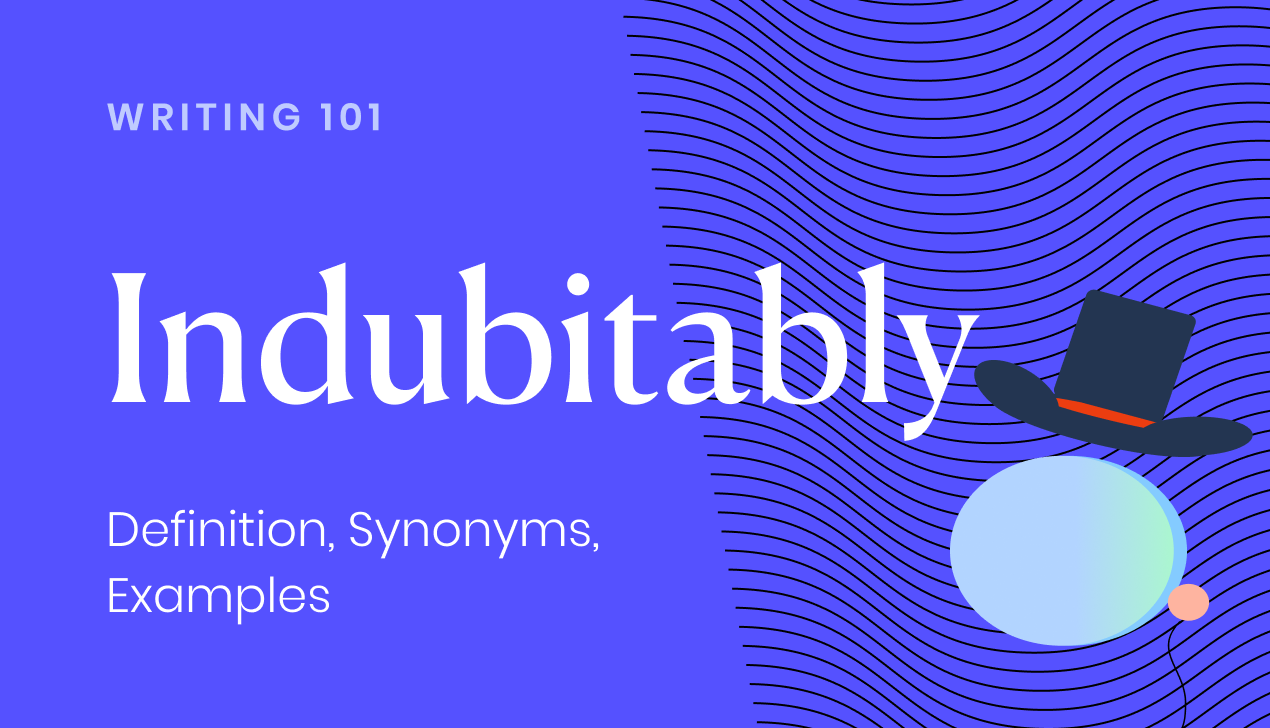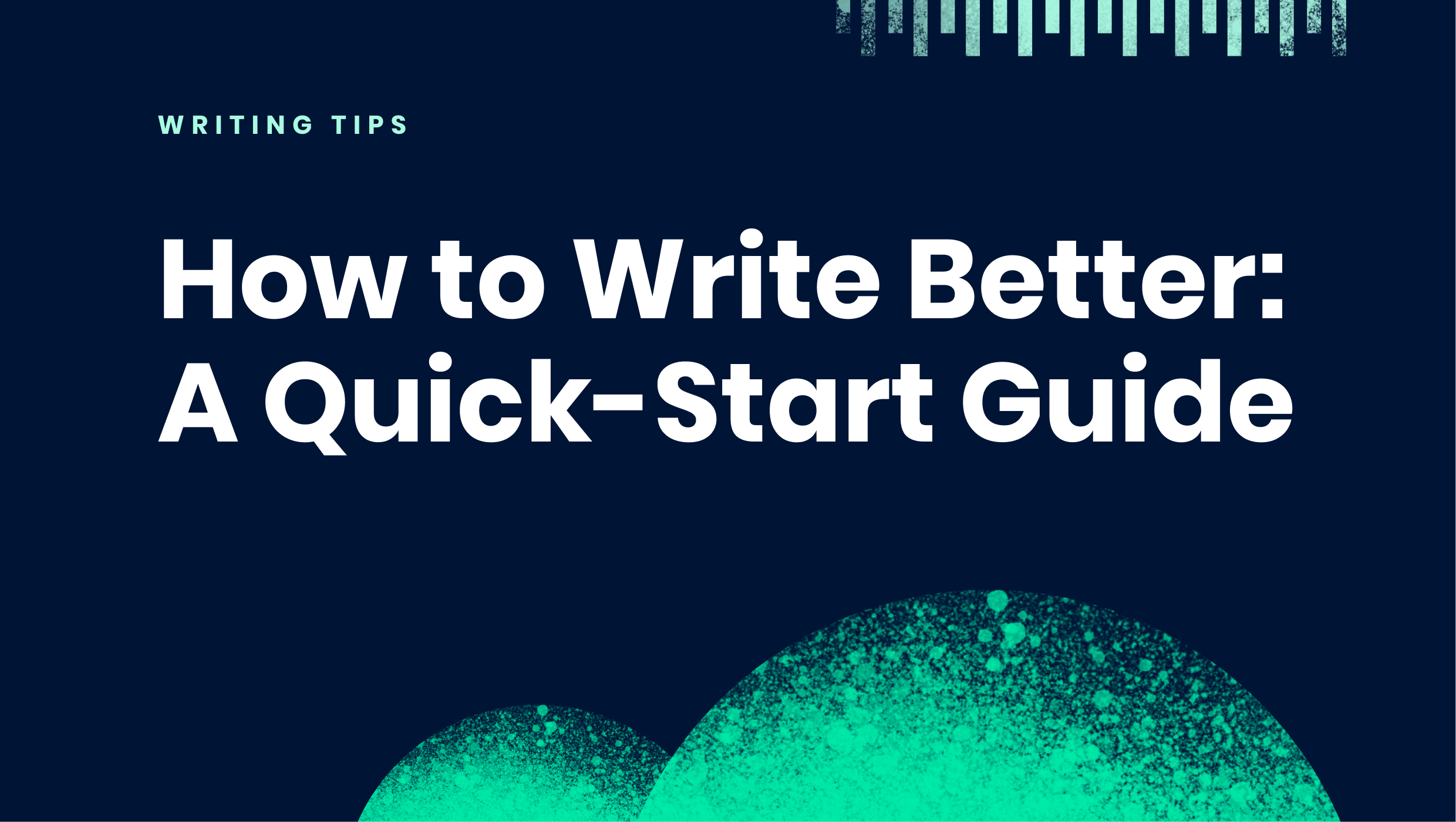
Words at work
– 7 min read
Affect vs. Effect: Which is right?
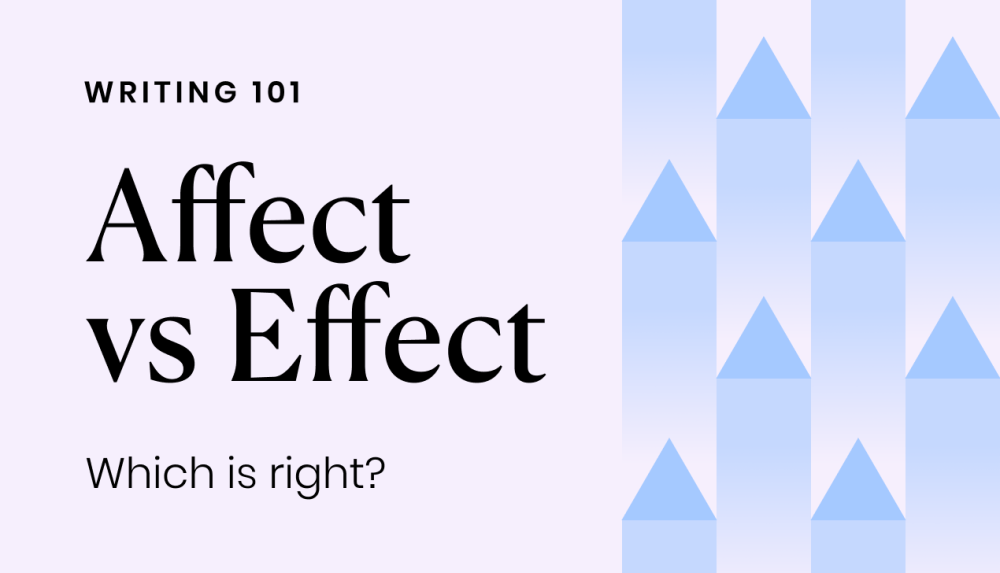
When confused between affect vs. effect, remember this: affect is a verb and effect is a noun. Well, mostly. We’ll get to the nitty-gritty of the usage details below. But a good starting point is to remember that when you need a noun, use effect. And, when there’s action involved and you need a verb, affect is the word to go with.
Honestly, you’re not alone when it comes to the challenge that effect vs. affect poses. Most people (including myself) have trouble or have had trouble trying to figure out which to use when.
The challenge surfaces because effect and affect are homophones in English language – words that have similar pronunciation, but different meanings. In this case, you’d pronounce effect as ɪˈfɛkt and affect as æfekt. Only a minor difference here in the emphasis on the ‘a’ and ‘e.’
In this post, we’ll dig into the difference between affect and effect and how to use the two in sentences. In the end, we’ll leave you with mnemonics or ways to remember the difference (nope, you don’t need to reference a thesaurus).
The difference between affect and effect
Ideally, you now know that the chief difference between affect and effect lies in one being a verb and another being a noun (typically).
To elaborate, when something acts or leaves an effect (crazy, I know 🙄), you’ll use affect.
For example:
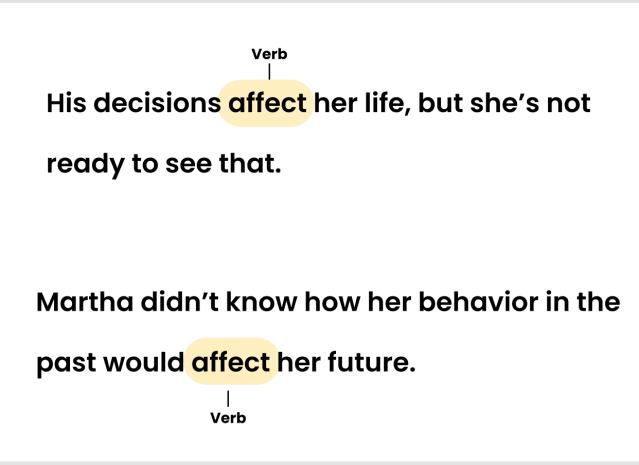
Note that in both the cases, affect is used as an action word: ‘decisions affect her life’ and ‘behavior in the past affect the future’
However, when you talk about consequences or an upshot – a side effect, immediate effect, any negative effects, personal effects, and so on – resort to using effect as a noun here.
Let’s look at examples of effect in a sentence:
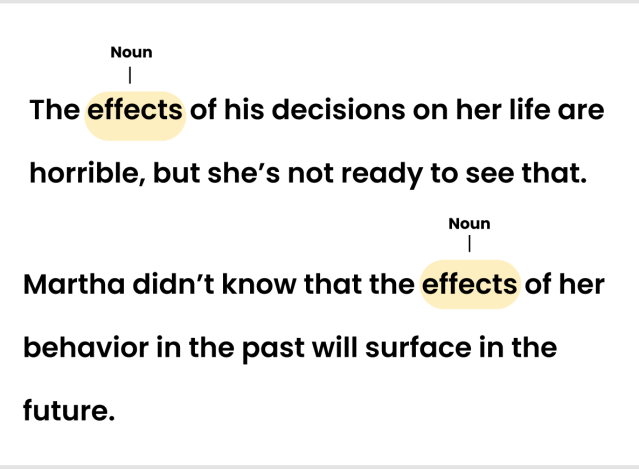
See how effect is delivering a consequence in each case: ‘the effect of his decisions,’ and the ‘effects of her behavior in the past.’
With this chief difference of action and consequence between affect vs. effect out of the way, let’s look at individual details of using these words next.
How to use affect
Affect mostly denotes an action, therefore, it’s used as a verb. There are three use cases:
👉 Affect is used to denote an effect. That is, an object acts on something.

👉 Affect is used to show impact on feelings.

👉 Affect is used with diseases and denote pain too.

But here’s the thing: Affect can sometimes be used as a noun too, not just a verb – making things somewhat tricky.
This isn’t very common though since affect as a noun is used mainly in psychology. For instance, affect is commonly used as a noun where it’s used as a feeling or emotion.
Affect as a noun example: Stroke leaves a poor affect on the mental wellness of most patients.
One last thing: affect is used as an adjective (one that describes a noun) too. Again, this isn’t very common. But, whenever, affect is used in this reference, it doesn’t mean a compliment. Instead, it’s used to show an artificial impression or pretentiousness.
Affect synonyms
Want to use other words for affect? Here the synonyms:
When you use affect to explain a change or effect: modify, sway, alter, and influence.
When you use affect to move feelings: touch and stir.
Affect etymology
Tracing the word’s origin now: Affect comes from the Latin affectus, which means a mood or state produced due to some external influence.
It’s the past participle of afficere, which means to do something or act on. Afficere also means to attack with disease.
Literally speaking, however, affect comes from ad which means ‘to’ and facere (past participle factus), which means ‘to make do.’.
This goes back to the 14th century. More recently, however, affect traces to German Affekt.
How to use effect
Generally, effect is used as a noun in the following four ways:
👉 As a consequence.

👉 To show results.

👉 To show fulfillment or an operation in progress.

👉 To show an emotional or mention impression.
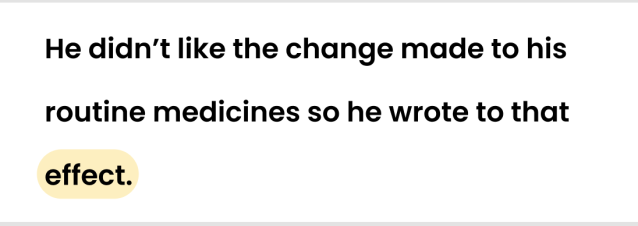
👉 To show an impression produced someone or something. This is where you use effect to write about all sorts of effects such as sound effects, adverse effects, a desired effect and more.
But, like affect, it’s use can also be changed sometimes. Since it’s already a noun, effect is used as a verb or action item at times.
The verb effect means to bring about. For example:
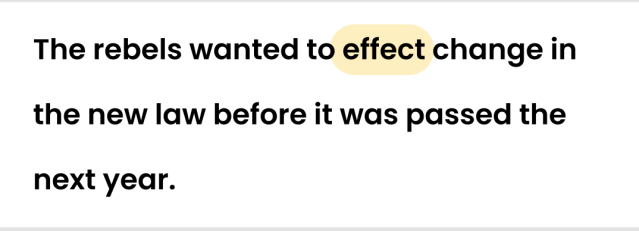
Effect synonyms
So what are some synonyms you can use for effect?
For noun effect: are issue and outcome.
For verb effect: perform, realize, achieve, and fulfill.
Since effect’s role here is to bring or encourage something into action, you’ll usually find it applicable with words like ‘solution’ or ‘change.’
Effect etymology
Now, where does the word effect come from? It traces back to the Old French word efet, which is effet in Modern French. Meaning: completing or executing an act. In Latin, effectus means a result, ending, or completion. More recently, effect translates to German effekt, Spanish efecto, and Portugese efeito.
The verb effect, on the other hand, comes from Latin effectus, past participle of efficere. It means working out or effecting.
Ultimately, see that all the meanings refer to effect as a consequence mostly.

Effect and affect in sentences
Here are some more examples that I’ve pulled from around the web:
“Acidic foods like apple cider vinegar may have similar effects, but more research is needed.” – Heathline.
“Whatever the reason, the pressure that accompanies financial stress can sometimes feel overwhelming and hard to escape — affecting our relationships, our sleep, and our health.” – Headspace.
“With chronic social isolation, these failed rescue attempts result in increased risk for diseases and mortality. Indeed, there is plenty of evidence for the effects of prolonged loneliness on health and mortality.” – Psychology Today.
Effect vs. Affect: Remembering the Difference
Now, for what we promised: mnemonics to help you remember when to use effect vs. affect.
Keep the following in mind:
- Since affect is mostly used as a verb or action word, you can remember that when there’s action involved, affect will be used. The common ‘A’ will help you recall easily.
- As for effect, it’s often used to show a special effect, desired effect, positive effect, personal effect, or any effect basically. In other words, it’s mainly involved in showing cause and effect. For that, remember the common ‘E’ in effect and cause and effect.
Even as you use affect as a noun to impress feelings or express the impact on someone as in psychology, you can use another handy mnemonic. This one’s the common A in affect and alteration or the change/influence on someone’s emotions or feelings.
Still unsure between these two often confused words? You’ve two solutions moving forward:
1. Practice
Start with taking our quiz on effect vs. affect below.
Then, go on to practice using the right words in your writing. Refer back to this piece to see if you’re using the right word as you write (I recommend you bookmark it for this purpose). With time, you’ll get a better grip on the difference between affect and effect and how to use them.
2. Use Writer
Once you run your draft through Writer, it can pinpoint incorrect use of affect and effect. This way, whatever you use – effect or affect – has little effect on your actual writing as the tool cleans off all dramatic effect of incorrect use for you.
And, if I’m being completely honest, I’ve used grammar correcting tools tons of times. Even if I’m a writer, I can certainly make mistakes.


